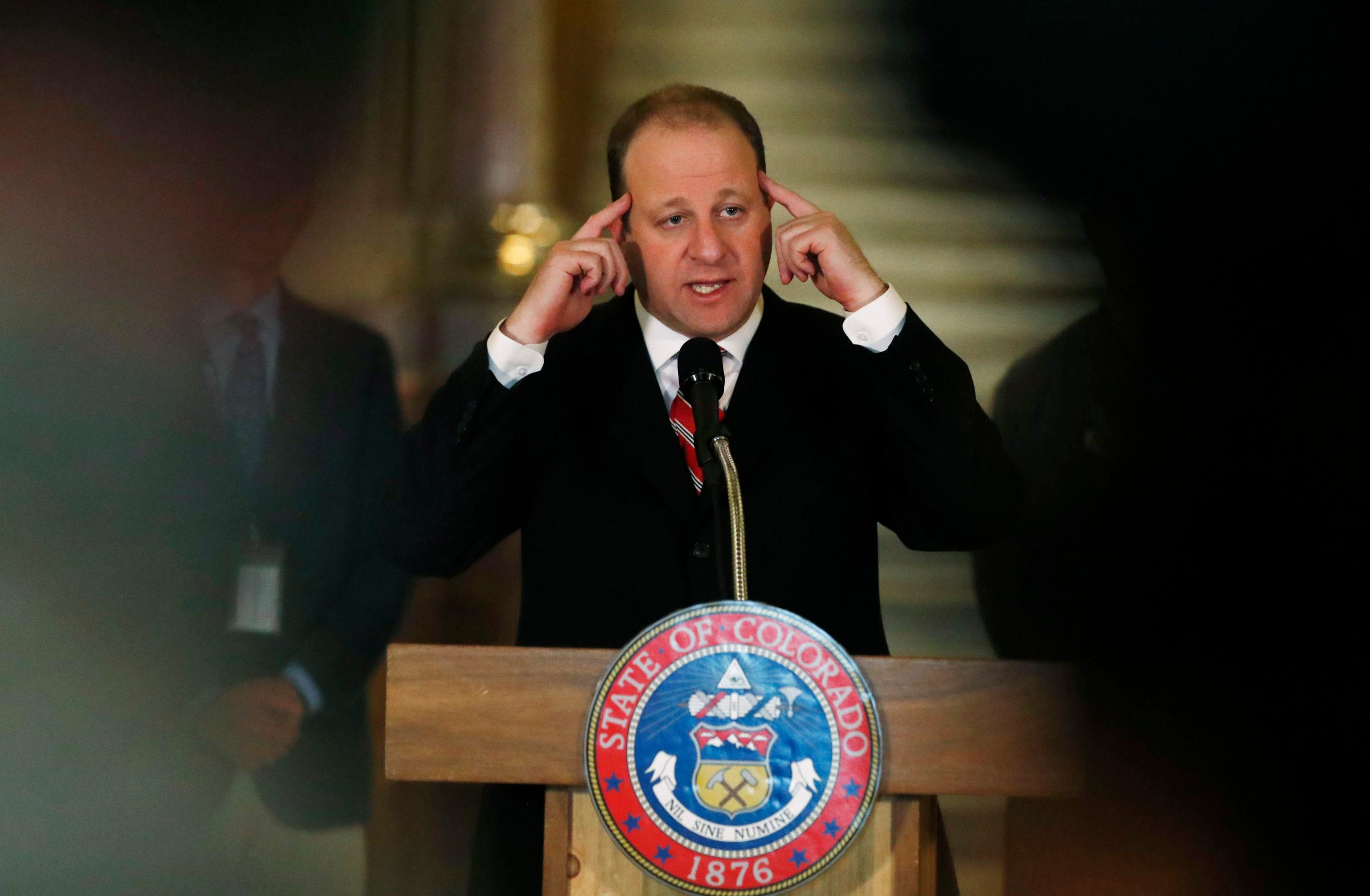
Colorado Gov. Jared Polis Monday ordered the closure of dine-in services at restaurants and bars throughout the state as he continues efforts to slow the spread of the coronavirus.
He also ordered gyms, casinos, theaters, coffeehouses, cigar bars, brewpubs and distillery pubs to close.
The order, effective at 8:00 a.m. on March 17, 2020, allows restaurants to continue to serve meals for delivery or carry-out, but not for in-person dining. It will stay in place for at least 30 days.
Nine other states have already taken action to close bars and restaurants, and, notably, Denver has already announced that bars and restaurants will not be allowed to seat patrons starting on Tuesday until May 11.
But the state has moved more slowly.
That changed Monday afternoon as the Governor's Expert Emergency Epidemic Response Committee voted to refer an order to Polis to put in place in advance of the looming St. Patrick’s Day holiday Tuesday.
Polis noted that there are 12,000 bars and restaurants statewide and he acknowledged the pain his order would cause for thousands of workers, but, he said, it was necessary to enforce "social distancing." Experts recommend that people stay at least 6-feet away from each other to avoid spreading COVID-19, the illness caused by the coronavirus.
Read more: I'm young and feel fine. Why should I stay home?
"Our hearts go out," to employees of affected businesses, Polis said.
With 29 new positive cases revealed Monday, Colorado now has 160 cases of COVID-19 in the state.
He said the state's Department of Labor and Employment would be available to answer questions of employers and workers in the industry.
Polis also ordered the closure of Colorado Division of Motor Vehicles offices where driver's licenses are issued. Renewals can still be done online.
The order, which actually came from the Department of Public Health and Environment, and was signed by its director, Jill Hunsaker Ryan, encourages affected businesses to offer take-away service.
"Places of public accommodation subject to this section are encouraged
to offer food and beverage using delivery service, window service,
walk-up service, drive-through service, or drive-up service, and to use
precautions in doing so to mitigate the potential transmission of
COVID-19, including social distancing," the order says. "In offering food or beverage, a place of public accommodation subject to this section may permit up to five members of the public at one time in the place of public
accommodation for the purpose of picking up their food or beverage
orders, so long as those individuals are at least six feet apart from one
another while on premises."
Earlier in the day, as the state's GEEERC committee considered the closure of bars, restaurants, gyms, casinos and theaters during a Monday afternoon meeting, panel members were persuaded of the necessity by a series of statistics showing the spread of the disease in the state and the potential impacts on the state's health care facilities.
“I'm very concerned about the health care systems up in the mountains and I'm becoming increasingly concerned about the health care systems down on the front range,” said GEEERC member Dan Pastula with the Colorado Board of Health. “The health care system is starting to get stressed right now. So I think we should take this absolutely very seriously and anything we can do to slow this down that's reasonable I think we should consider.”
Polis attended the group's meeting by phone and also asked the committee to debate a stronger order on closing all or many nonessential businesses later.
“That’s not something that I feel that the GEEERC or I can consider at this point. We’re not going to decide on a whim, ‘oh this is essential, this isn’t,’” Polis said.
The committee struggled to classify essential versus nonessential businesses on Monday, noting that businesses like hardware stores are needed to make home repairs but don’t seem essential at first glance.
Many local health officials have wanted the governor to issue statewide orders on business closures, to provide uniformity and add weight to the directives. During the Monday meeting, experts displayed graphs and data on the effectiveness of social distancing. Some aggressive measures could reduce transmission and deaths exponentially.
The research modeling showed that “even a day’s delay can lead to much larger numbers of cases and death,” said Eric France, Colorado’s Chief Medical Officer.
Polis encouraged Coloradans to support each other through the crisis and to consider themselves "heroes" if they are complying with social distancing recommendations.
And he encouraged residents to take advantage of the state's natural offerings to get out while staying away from other people.
"Be smart, be safe, don't worry, that doesn't help. Find fulfilling ways to be closer to those around you," Polis said, adding, "lookout for one another."
Editor's note: This story has been updated to reflect the date and time the order goes into effect, which was provided by the governor's office after he made the verbal announcement reflecting a different date and time.









